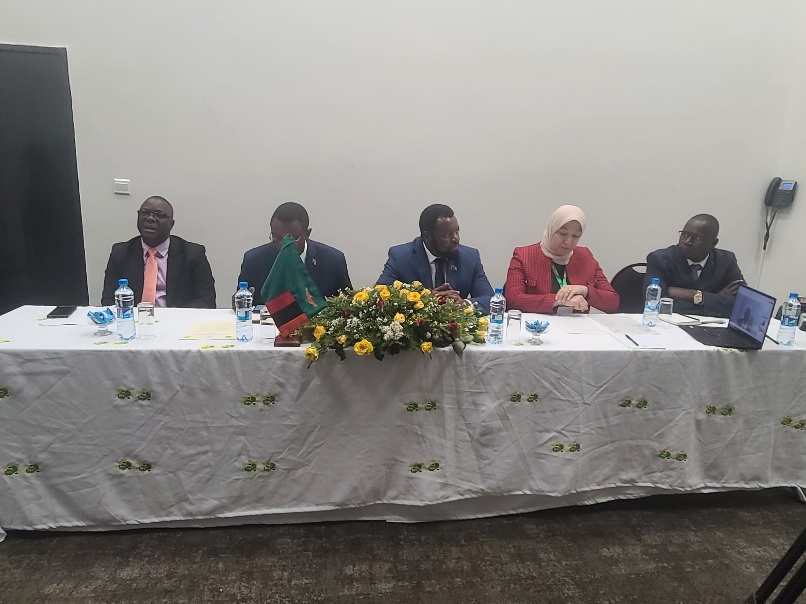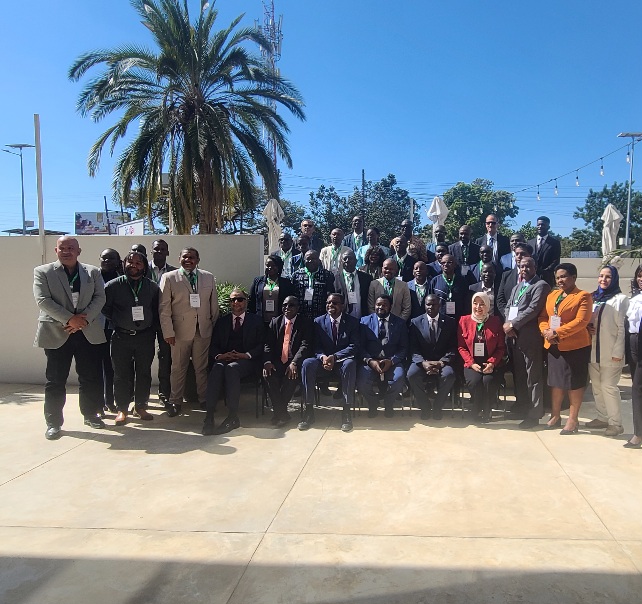Nuclear Alert: Africa Acts
 A collaborative meeting of over 30 nations kicks off in Lusaka to advance emergency planning, promote joint action on radiological threats, and strengthen nuclear preparedness.
A collaborative meeting of over 30 nations kicks off in Lusaka to advance emergency planning, promote joint action on radiological threats, and strengthen nuclear preparedness.By Francis Maingaila
Lusaka, Zambia – August 5, 2025
Zambia on Monday welcomed representatives from more than 30 African countries and international partners to Lusaka for a landmark regional meeting aimed at boosting emergency preparedness and response to nuclear and radiological threats.
The collaborative forum seeks to develop a harmonized roadmap that will guide national and cross-border actions to strengthen Africa’s capacity to manage radiological emergencies effectively.
Speaking at the opening ceremony, Dr. Boster Dearson Siwila, Director-General of Zambia’s Radiation Protection Authority (RPA), highlighted the urgent need for coordinated preparedness given the growing use of radioactive materials in sectors such as health, agriculture, industry, and water management.
“This meeting presents a vital opportunity to develop a strategic framework that strengthens national preparedness while promoting cross-border cooperation and mutual assistance during emergencies,” Dr. Siwila said.
He noted Zambia’s ongoing investments in public awareness, collaboration with national and international partners, and continuous improvement of emergency response systems.

Representing the Ministry of Technology and Science, Dr. Rally Mweetwa, Acting Director for Technology, Science and Innovation, stressed Zambia’s legislative progress, including the submission of ratification instruments under IAEA guidance.
He called on African countries to expand their role beyond uranium export to become leaders in safe and regulated use of nuclear materials.
“Aligning with international standards is critical to advancing nuclear safety on the continent,” Dr. Mweetwa said.
Msafiri Sinkala, Vice Chairperson of the RPA Board, urged countries without national emergency plans to learn from those with established systems and to fast-track plan development.
“By the end of this meeting, we aim to produce a strong regional roadmap,” she said.
“Within one to two years, every country should have at least a draft emergency plan in place.”
Virtual remarks from IAEA Technical Officer Gashaw Wolde reinforced the agency’s commitment to supporting African nations through capacity building, emergency planning, training, and deployment of advanced detection technologies.
“Robust emergency preparedness and response mechanisms are essential to safeguard people and the environment as the peaceful use of nuclear technology expands,” Wolde said.
From the Forum of Nuclear Regulatory Bodies in Africa (FNRBA), Hussain Adamu Midala outlined the group’s work to harmonize regulations, develop model documents, conduct regional exercises, and build a data-sharing portal to support emergency response coordination across member states.
European input was provided by Jean Luc Lachaume, Commissioner of France’s Nuclear Safety Authority (ASN) and Chairperson of the European Association of
Radiological Protection Authorities (HERCA). He noted that Europe’s experience with densely clustered nuclear facilities underscores the need for harmonized emergency response plans.
“This meeting is a crucial step toward building a coordinated and robust emergency preparedness framework for Africa,” Lachaume said.
In closing, the Board Chairperson of the Radiation Protection Authority emphasized that with increasing reliance on radioactive sources for development, preparedness remains a shared responsibility essential to public trust and safety.
“The regional roadmap we develop here will guide our collective efforts and ensure every African nation can respond swiftly and effectively in times of crisis,” the Chairperson said.
The meeting is set to conclude with the adoption of a regional action plan aimed at enhancing nuclear emergency preparedness and response across Africa, fostering collaboration, and strengthening resilience against radiological threats.



Comments
Post a Comment